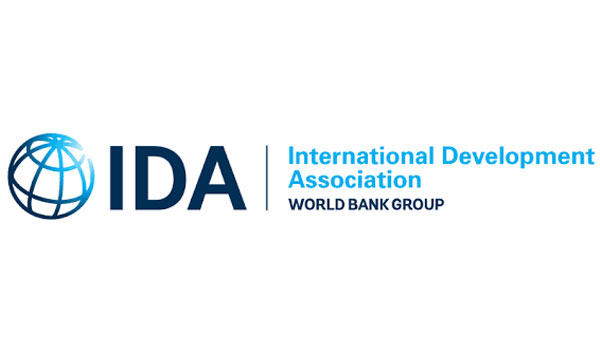
Fortune News | Jun 01,2019
Mar 9 , 2019
By Yared Assefa
Intellectual property, a highly neglected concept in Ethiopia, involves creation of the mind such as inventions, literary and artistic works, designs and symbols, and even names and images.
In the creative sector, one can find businesses and organisations in the visual and performance arts, TV and radio, publishing and print, advertising, fashion and design. These are major constituents of the service sector, which is the backbone of any economy, perhaps not in their contribution to the gross domestic product (GDP), but in facilitating other industries as well.
Why are intellectual property rights so important for governments to enforce strictly?
Intellectual property rights incentivise innovations by guaranteeing innovators that their hard work will not only be recognised but that they can garner financial benefits. Protecting innovators benefit the economy and society as a result of the creative disruption that takes place.
Patents are a deal between innovators and government. Government grants the exclusive use of one's innovation for a limited period, and in return, it is expected that knowledge is shared within society.
Strong intellectual property rights help companies generate income, enhance the value of their businesses and secure a competitive edge. Their constant investments in research and development with the hopes of a large return is what improves the quality of goods and services, and from time to time, introduces the world to groundbreaking innovations that bring progress to civilisation.
It is the film industry that usually comes to mind when intellectual property rights, in the form of copyrights, are discussed. And indeed, it is an industry that serves well to show how destructive lack of proper enforcement of intellectual property rights could be.
A major complaint by audiences about the industry is that the films being produced have the same theme or storyline and lack originality. Perhaps this does not suffice to push audiences away from the movies, but it would sure make them think twice about buying theatre tickets.
The industry insiders for their part complain of widespread pirating of films not yet released outside theatres. Indeed, it is not too hard too easily find copies of the films in theatres or cheaper versions of the DVDs that are officially released.
An industry that fails to make enough profit will fail to attract talented individuals that can bring the necessary creativity to the products or the services that are sold. One needs not mention that this applies to other sectors of the economy as well.
Either from overseas or locally, circumstances together with individual ability will allow someone somewhere to identify a problem and come up with a solution that benefits many. Such innovators should be rewarded with a patent, as is customary in many countries, and enforced strictly.
This is to the benefit of the innovators, consumers, the government and the nation. A novel innovation will get the attention of consumers, and in a monetised form, this will count as the fruit of an innovator's hard work. And by improving on a certain good or service, the economy will be benefited, as will the government and society that depend on it.
Current practices, coupled with a lack of awareness on the protection of intellectual properties, are leading to copycat businesses that artificially cheapen the prices of goods and services by driving down quality. This ruins businesses and individuals and discourages entrepreneurship and innovativeness, both of which are crucial to a productive and competitive economy. The government subsequently loses much-needed revenue, quality of the products will not be assured and businesses will not make enough money to re-invest in further improvements.
Ethiopia should be a country where individuals are rewarded for their efforts and where one is treated fairly. What this requires from the government is a strong enforcement system, awareness creation campaigns and an independent judiciary that can guarantee the rights of individuals and small business.
Such a practice will incentivise many and encourage others from all walks of life in Ethiopia to improve production processes wherever they can or even come up with utterly new products. It is a win-win situation for all.
PUBLISHED ON
Mar 09,2019 [ VOL
19 , NO
984]


Fortune News | Jun 01,2019

Commentaries | Oct 07,2023

Fortune News | Apr 13,2025

Commentaries | Aug 30,2025

Radar | Jan 21,2023

Commentaries | Mar 12,2022

View From Arada | Jun 19,2021

Radar | Feb 11,2023

Viewpoints | Nov 21,2018

Radar | Nov 16,2024

Photo Gallery | 178402 Views | May 06,2019

Photo Gallery | 168603 Views | Apr 26,2019

Photo Gallery | 159400 Views | Oct 06,2021

My Opinion | 137072 Views | Aug 14,2021
Commentaries | Oct 25,2025

Dec 22 , 2024 . By TIZITA SHEWAFERAW
Charged with transforming colossal state-owned enterprises into modern and competitiv...

Aug 18 , 2024 . By AKSAH ITALO
Although predictable Yonas Zerihun's job in the ride-hailing service is not immune to...

Jul 28 , 2024 . By TIZITA SHEWAFERAW
Unhabitual, perhaps too many, Samuel Gebreyohannes, 38, used to occasionally enjoy a couple of beers at breakfast. However, he recently swit...

Jul 13 , 2024 . By AKSAH ITALO
Investors who rely on tractors, trucks, and field vehicles for commuting, transporting commodities, and f...

Oct 25 , 2025
The regulatory machinery is on overdrive. In only two years, no fewer than 35 new pro...

Oct 18 , 2025
The political establishment, notably the ruling party and its top brass, has become p...

Oct 11 , 2025
Ladislas Farago, a roving Associated Press (AP) correspondent, arrived in Ethiopia in...

Oct 4 , 2025
Eyob Tekalegn (PhD) had been in the Governor's chair for only weeks when, on Septembe...

Oct 25 , 2025 . By YITBAREK GETACHEW
Officials of the Addis Abeba's Education Bureau have embarked on an ambitious experim...

Oct 26 , 2025 . By YITBAREK GETACHEW
The federal government is making a landmark shift in its investment incentive regime...

Oct 29 , 2025 . By NAHOM AYELE
The National Bank of Ethiopia (NBE) is preparing to issue a directive that will funda...

Oct 26 , 2025 . By SURAFEL MULUGETA
A community of booksellers shadowing the Ethiopian National Theatre has been jolted b...